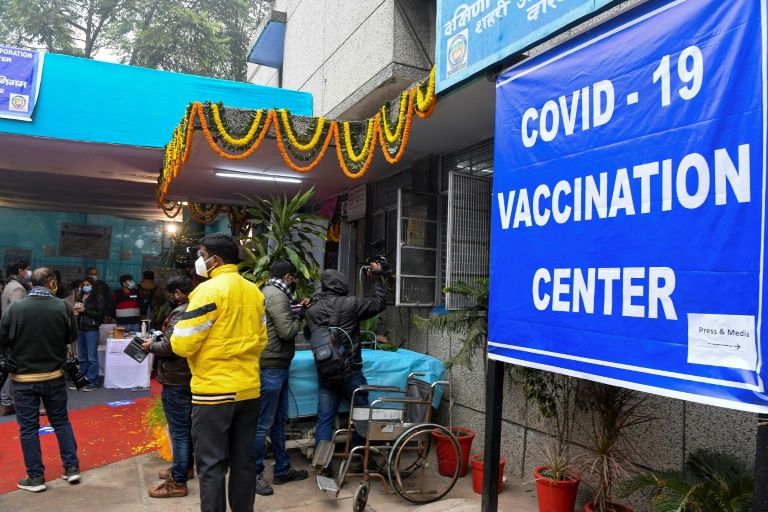India approves two Covid-19 vaccines for emergency use
India has been holding nationwide drills ahead of the mass inoculation drive and 96,000 health workers have been trained to administer the shots. ©AFP Prakash SINGH
New Delhi (AFP) – India has authorised the emergency use of two coronavirus vaccines developed by AstraZeneca and Oxford University and by local pharmaceutical firm Bharat Biotech, the country’s drug regulator said Sunday.
“The… vaccines of Serum Institute (AstraZeneca/Oxford vaccine) and Bharat Biotech are being approved for restricted use in emergency situations,” the Drugs Controller General of India, V.G. Somani, said at a briefing.
Prime Minister Narendra Modi tweeted that the fast-track approvals were “a decisive turning point to strengthen a spirited fight” that “accelerates the road to a healthier and Covid-free nation”.
India is the world’s second most-infected nation with more than 10.3 million cases and almost 150,000 deaths, although its rate of infection has come down significantly from a mid-September peak of more than 90,000 cases daily.
The approval is expected to kick off one of the world’s biggest vaccination drives in the country of 1.3 billion people.
The government has already been holding nationwide drills ahead of the mass inoculation drive and 96,000 health workers have been trained to administer the shots.
Somani added to reporters after the briefing that the drug regulator would “never approve anything if there is the slightest safety concern”.
“The vaccines are 100 percent safe,” he said, adding that side effects such as “mild fever, pain and allergy are common for every vaccine”.
The Serum Institute of India, the world’s biggest manufacturer of vaccines, has said it is making between 50 and 60 million doses a month of the AstraZeneca/Oxford vaccine.
Serum Institutes chief executive Adar Poonawalla tweeted after the approvals that the vaccine would be “ready to roll-out in the coming weeks”.
Disclaimer: Validity of the above story is for 7 Days from original date of publishing. Source: AFP.


